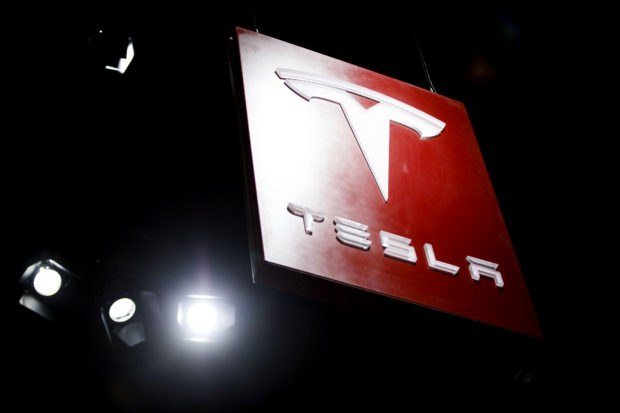Tesla and its CEO Elon Musk did not admit liability in this weekend’s $20 million settlement with the U.S. Securities and Exchange Commission. But lawyers for shareholders suing Tesla in for securities fraud said the SEC’s case against Musk and his company will help the private litigation in at least two ways.
The most important boost comes from the SEC’s Sept. 27 complaint, which contains detailed allegations about the agency’s investigation of Musk’s Aug. 7 claim to have secured financing for a deal to take Tesla private at $420 per share.
The SEC complaint detailed Musk’s own account of a crucial meeting with a sovereign wealth fund that was allegedly the basis of his tweet floating the go-private deal. The SEC also outlined Musk’s communications with Tesla board members about the meeting and recounted some of the reaction within the company to Musk’s tweet. According to the SEC, that evidence showed Musk’s tweets about the go-private deal “were premised on a long series of baseless assumptions and were contrary to facts that Musk knew.”
Shareholders’ lawyers say investors can incorporate the SEC’s factual allegations in the private litigation. Plaintiffs in securities class actions are not permitted to obtain discovery from defendants until their cases have survived initial defense dismissal motions. The SEC, however, was able to get crucial evidence, including testimony from Musk. Because the agency made that evidence public in its complaint, class action lawyers can now make use of it.
That evidence increases the likelihood that the private class action will survive any attempt by Tesla to end the litigation quickly, according to shareholders’ lawyers Reed Kathrein of Hagens Berman Sobol Shapiro, Francis McConville of Labaton Sucharow and Travis Lenkner of Keller Lenkner. Kathrein, McConville and Lenkner all represent shareholders who have sued Tesla for securities fraud in San Francisco federal court.
“We can plead the facts in the SEC complaint that we didn’t have,” Kathrein said. “That can get us past Tesla’s motion to dismiss.”
McConville said there have been previous cases in which judges have allowed shareholders’ lawyers in private cases to incorporate facts from regulators’ complaints. He cited, for example, a class action in Manhattan federal court alleging that Barclays secretly favored high frequency traders. The bank argued that shareholders could not rely on allegations developed by the New York attorney general, but U.S. District Judge Shira Scheindlin rejected that argument in a 2015 opinion (105 F.Supp.3d 330).
Hedge Funds Take the Reins?
Tesla is represented in the private securities litigation by Fenwick & West. I emailed Fenwick lawyers Dean Kristy and Jennifer Bretan to ask about shareholders’ lawyers’ take on the consequences of the SEC case but didn’t hear back. The company and Musk are permitted, under the SEC settlement, to deny liability in the private shareholder litigation. Tesla will almost certainly argue that investors cannot prove Musk intended to deceive them in his Aug. 7 tweets and that he had a reasonable basis to believe he was being truthful.
The second potentially significant consequence of the SEC’s case, according to shareholders’ lawyers, is that the settlement could nudge hedge funds off the sidelines and into leadership of the investor class action.
Several investors have already filed prospective class actions against Tesla and its board members. Those cases are being overseen by U.S. District Judge Edward Chen of San Francisco. Under the statutory rules for securities class actions, investors who want to be named to lead the consolidated case must file notice by Oct. 9.
So far, mostly small Tesla investors have surfaced. Only one well-known investor, activist shortseller Andrew Left of Citron Research, has filed a suit and staked a claim to lead the case. That’s not a big surprise. Hedge funds like those that held big short positions in Tesla stock are historically reluctant to initiate shareholder class actions.
But the SEC settlement could change the calculation for institutional Tesla investors, according to shareholders’ lawyers. “It’s one thing to be an instigator,” said Lenkner. “There’s a different public profile if you’re acting after a government regulator has already said there’s misconduct and reached a settlement.”
Hedge funds may even have a fiduciary responsibility to step up to lead the investor class action, Lenkner said. Assuming the case survives Tesla’s dismissal motions, damages calculations will be shaped, according to Lenkner and Kathrein, by how the lead investor and its lawyers define shareholder losses and frame the time period of the alleged fraud.
“The ability to control the case from the beginning is important,” Lenkner said. “When you have a government settlement and these alleged facts, that starts to move the needle toward ‘This is something you must do’ rather than ‘This is something you should do.'”
Kathrein agreed: “Now you don’t look like an angry investor,” he said. “You’re looking at, what should you do to protect your client base.”
All three plaintiffs’ lawyers said they are talking to investors with large Tesla stakes about the prospect of stepping up to lead the case. (Shareholders do not have to file their own lawsuits at this point but can simply file a motion to serve as the lead investor in the cases already before Judge Chen.) They’re anticipating a lot of action in the Tesla docket before that Oct. 9 deadline.
“I’ve been doing this for 10 years,” said McConville. “This is by far the most newsworthy, buzzworthy case we’ve been involved with.”





















 Insurance Groundhogs Warming Up to Market Changes
Insurance Groundhogs Warming Up to Market Changes  Retired NASCAR Driver Greg Biffle Wasn’t Piloting Plane Before Deadly Crash
Retired NASCAR Driver Greg Biffle Wasn’t Piloting Plane Before Deadly Crash  Winter Storm Fern to Cost $4B to $6.7B in Insured Losses: KCC, Verisk
Winter Storm Fern to Cost $4B to $6.7B in Insured Losses: KCC, Verisk  Allianz Built an AI Agent to Train Claims Professionals in Virtual Reality
Allianz Built an AI Agent to Train Claims Professionals in Virtual Reality 




